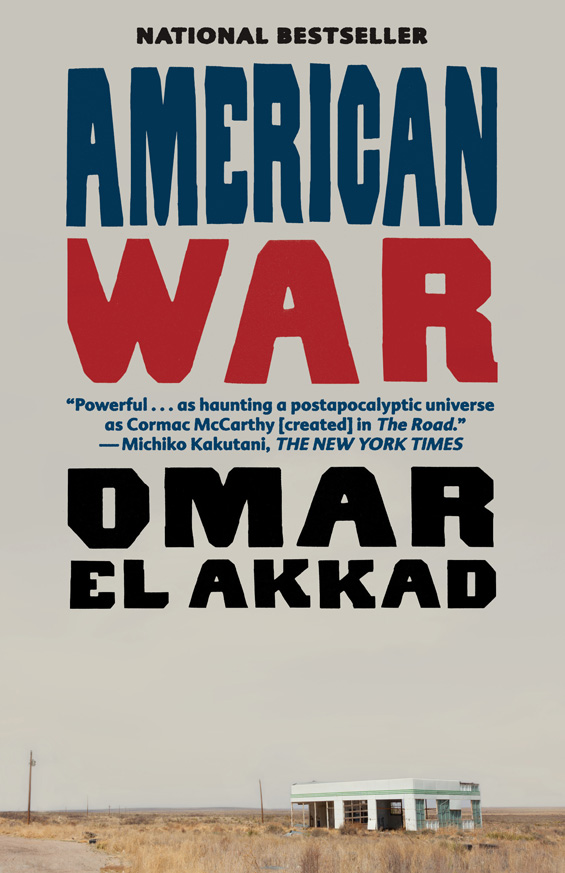
As a teenager, I devoured science fiction, and my addiction resumed for extended periods later in life. I was attracted above all by the sheer creativity the writers demonstrated in speculating about life and reality from new perspectives. And I must admit I was a bit of a nut about space travel, too. I’ve always frustrated my progressive friends by supporting the space program.
This post was updated on April 15, 2024.
From pulp literature to speculative fiction
In times past, including the years of my youth, science fiction was widely regarded as pulp literature suitable only for 14-year-old boys. Those days are long past. Now the field is often referred to as speculative fiction. Which makes sense. The term has allowed such mainstream authors as Kurt Vonnegut and Margaret Atwood to deny vehemently that they write science fiction. Even if they really do.
In the lists below, you’ll find more than 200 top science fiction novels reviewed in recent years on this site. Some of these titles will be familiar to you if you’re a science fiction fan. You’re less likely to know others. Each title is followed by a link to my review.
In the first list, I’ve included only the top 10 books I’ve read and reviewed here over the past fourteen years—not any I might have read earlier. (Well, to be honest, there are 12 titles in the list. I couldn’t resist.) Following the “top 10” is a list of all the top science fiction novels I’ve reviewed. And within that longer list, I’ve attempted to group the titles by theme. Again, those include only books I read and reviewed here. I’m excluding hundreds more that I read in earlier years but never reviewed. Within each list, titles are grouped in alphabetical order by the authors’ last names.
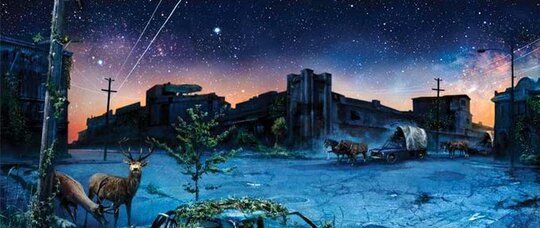
10 top science fiction novels
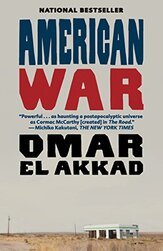
Omar El Akkad, American War – A chilling tale, lucidly told, of a Second American Civil War
In American War by Omar El Akkad, the Second American Civil War erupts in 2074 when Sara T. (“Sarat”) Chestnut is six years old. Four states in the Deep South have seceded in response to federal legislation banning the use of fossil fuels—and a Southern “homicide bomber” has assassinated the President of the United States in Columbus, the country’s new capital. The Reds and Blues are now at war. And much worse is in store for the unfortunate people of this once-democratic nation.
In previous decades, rising seas and monster storms have submerged large swaths of the Eastern and Gulf Coasts, driving millions of people far into the nation’s heartland. Boston, New York, Washington—every low-lying city on both coasts—they’re all now under water. Elevated temperatures have eliminated countless animal species and destroyed huge areas of formerly rich farmland. Mexico has seized Texas and most of the Southwest, governing them under a Protectorate. And the United States has long been isolated on the world stage. “[T]he 2030s and 2040s [were] the last decades before the planet turned on the country and the country turned on itself.” The “newborn superpowers” are China and the Bouazzizi Empire that spans North Africa and the Middle East. Read the review.
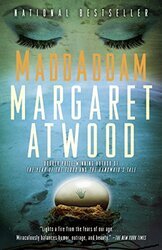
Margaret Atwood, The Maddaddam Trilogy – Margaret Atwood’s classic dystopian fiction
In Oryx and Crake, Book #1 of the Maddaddam Trilogy, we enter the future world of Atwood’s cruel vision, the late twenty-first century shortly after the Waterless Flood, which virtually exterminated the human species. The most pessimistic projections of climate change have wrought havoc on Planet Earth, and it’s not a pretty picture. Book #2, The Year of the Flood, takes us back to the years preceding the Flood, when the conditions described in Oryx and Crake came about. We learn the nature of the Flood, and how it came to be. Finally, in Book #3, MaddAddam, we encounter once again the principal characters of the first two books and follow them as the future grimly unfolds. Most of the action is compressed into a few months following the calamity of the Flood. Read the review.
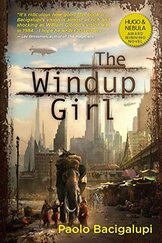
Paolo Bacigalupi, The Windup Girl – A frightening novel about bioengineering gone wild
The action takes place in Bangkok sometime in the 23rd century. Sometime in the past, the oceans have risen twenty feet or more, and the city survives only because a visionary Thai king has built an enormous seawall, dikes, and pumps to hold back the waters of the annual monsoon. Genetic engineering has run amok around the globe, and the Thai Kingdom is one of few countries, perhaps the only country, still resisting the “calorie companies,” powerful food-exporting corporations headquartered in the American Midwest and in China. Having killed off virtually all traditional sources of food—and hundreds of millions of people—with genetically engineered plagues to increase their leverage in the market, the calorie companies hungrily eye Thailand and its own independent success in creating new fruits and nightshades capable of resisting the ubiquitous plant-killers. Read the review.
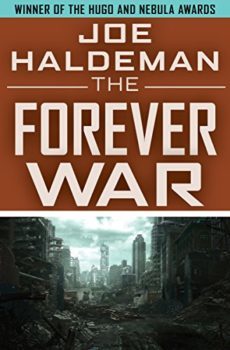
Joe Haldeman, The Forever War (Forever War Trilogy #1) – This classic science fiction war novel won both the Hugo and Nebula Awards
Joe Haldeman’s classic science fiction war (actually, anti-war) novel, The Forever War, appears on most lists of the all-time most popular stories in the field. The book won both the Hugo and Nebula Awards for Best Novel. When it was published in 1974, the Vietnam War was winding down. Haldeman had fought in the war and was badly wounded there. At the time, a dozen publishers rejected the novel because, as Haldeman reveals in an Author’s Note at the front of the Kindle edition of the novel, “‘nobody wants to read a science fiction novel about Vietnam.'”
Today, the parallel between the Vietnam War and Haldeman’s story is difficult to see. The Forever War could be no war in history, or every war. “It’s about Vietnam because that’s the war the author was in,” Haldeman writes. “But it’s mainly about war, about soldiers, and about the reasons we think we need them.” Read the review.
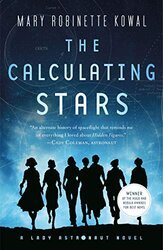
Mary Robinette Kowal, The Calculating Stars (Lady Astronaut #1)—This novel shows just how good hard science fiction can be
The Calculating Stars introduces Dr. Elma Wexler York, a mathematical genius with doctorates in physics and math from Stanford University. Elma had gone to high school at age eleven and to Stanford at fourteen. She’s the anxiety-ridden daughter of a Jewish Army general who works as a computer at the National Advisory Committee for Aeronautics, or NACA. (In those days, “computers” were people, not machines, and most of them were women. Using paper, pencil, and adding machines, they wrote the equations for the ballistics calculations used in artillery and, later, in missiles and rockets.)
And, yes, you read that right. It’s NACA, not NASA. Because the novel is set in the 1950s in an alternate history of the United States—and the planet. Tom Dewey had defeated Harry Truman in 1948. He has taken advantage of Wernher von Braun and the other former Nazi rocket engineers whisked away to the US. So, Dewey has jump-started the space program a decade before John F. Kennedy did so in reality. And Elma’s husband, Nathaniel, is the lead engineer in the rocketry program. Read the review.
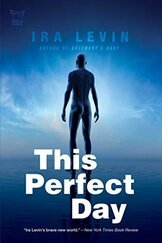
Ira Levin, This Perfect Day – A superb tale of a future where artificial intelligence rules
Centuries in the future, the people of Earth live under the control of an artificial intelligence called UniComp. A century and a half earlier, the computers governing the five continents had come together in the Unification. The result was a worldwide society free of war, hunger, crime, and violence of any sort. “Hate” and “fight” are swear words. This is the world Ira Levin describes in his superb science fiction novel, This Perfect Day. Although it reads as though it might have been written today, the book was first published half a century ago in 1970. Read the review.
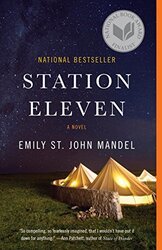
Emily St. John Mandel, Station Eleven – Life on Earth after the apocalypse
Station Eleven is, at heart, the story of an A-list Hollywood film star named Arthur Leander and several of the people whose lives cross with him before the Collapse. Leander, playing the part of King Lear in a stage production in Toronto, suffers a heart attack and collapses on-stage during Act IV. A paramedic-in-training named Jeevan Chaudhary instantly leaps onto the stage from the audience but is unable to save him. The tragedy is witnessed by Kirsten Raymonde, one of three eight-year-old girls who have been playing small, silent roles in the production. Meanwhile, a virulent mutation of influenza, called the Georgian Flu, has been killing off the population of Georgia and Russia and is rapidly fanning out across the world in airplanes filled with refugees from the pandemic. Arthur has died just days before the disease reaches North America.
St. John Mandel’s story unfolds in a rapid succession of short scenes in the post-apocalyptic world along the shores of Lakes Huron and Michigan. It’s 15 and 20 years after the collapse. “Collapse” is the popular term for the apocalypse brought on by a pandemic. There are frequent flashbacks into the lives of the central characters. Through the twists and turns of the plot, the lives of these characters frequently intersect. One of them dies of the Georgian Flu. We visit the others both in flashbacks to their pre-pandemic lives and many years after the Collapse. Read the review.
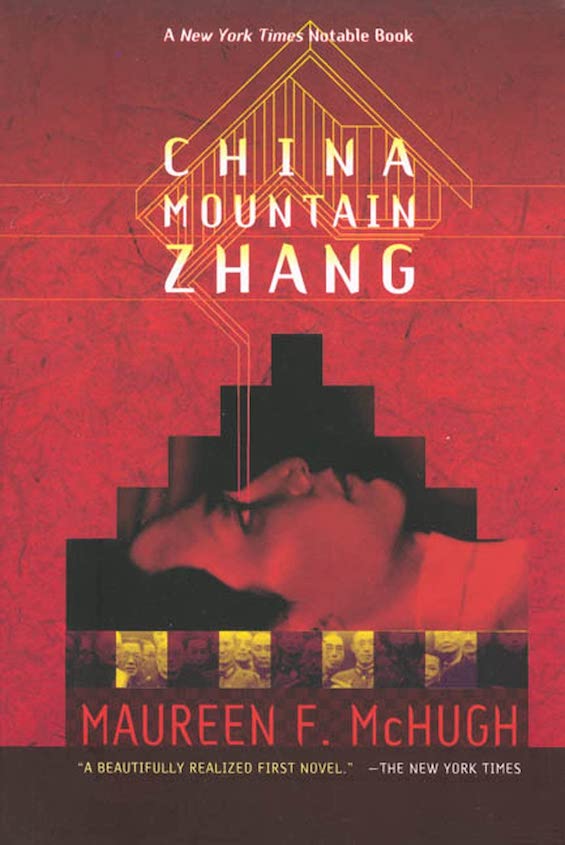
China Mountain Zhang by Maureen F. McHugh—A forgotten 30-year-old science fiction classic
Every year, the publishing industry pours out a torrent of new books. Some 275,000 in the United States alone last year, according to the International Publishers Association. And that doesn’t count hundreds of thousands of self-published works. The total reported elsewhere is one million titles. In this chaotic publishing environment, it’s no wonder that a single book might get lost no matter how important, insightful, or beautifully written. And that’s doubly true even for a science fiction classic like China Mountain Zhang, which was written three decades ago. Despite winning several major awards in the field, garnering nominations for the Hugo and Nebula, and gaining recognition as a New York Times Notable Book, this extraordinary novel is little known today. It deserves much more attention. Read the review.
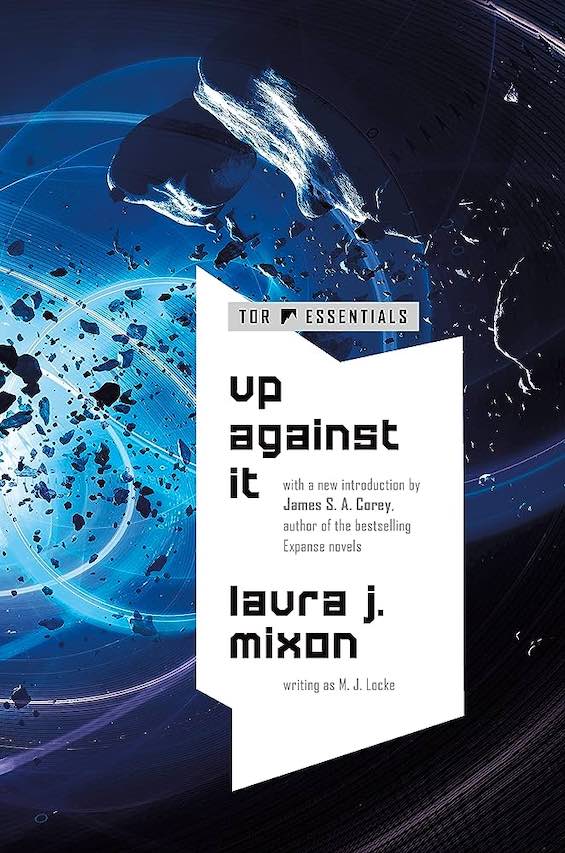
Up Against It by Laura J. Mixon—Life, death, and politics in the asteroid belt
Why do some novels win Hugo or Nebula Awards while thousands of others don’t? Is it because they’re the “best?” Of course not. You and I know better than that. Like the Academy Awards or those in any other field, other factors enter the picture. Sometimes, how long the authors have been writing, how well known they are, and whether they’ve never won the awards before and “deserve” to win at last. Other times, the author’s, or the author’s agent’s, connections make the difference. The upshot is that some truly brilliant books are entirely overlooked in awards season. And Laura J. Mixon’s 2011 sci-fi mystery mashup, Up Against It, is an outstanding example of a novel that should have won both the Hugo and the Nebula. It’s that good. Read the review.

Ramez Naam, The Nexus Trilogy – The post-human future explored in an outstanding SF novel
Will the transformation of humanity by artificial intelligence stop there? Is there a step far beyond into post-human abilities so far superior to those of human beings today that a new species will result? This is the premise of Ramez Naam‘s brilliant science fiction trilogy. In Nexus, the first of the three novels, Naam explores the circumstances in which the conflict between humans and post-humans emerges into the open. Although the book is unquestionably imaginative, it is far from fantasy. Naam is a computer scientist and is intimately familiar with contemporary neurological research into using computer interface technology to enhance human cognitive abilities. Read the review.
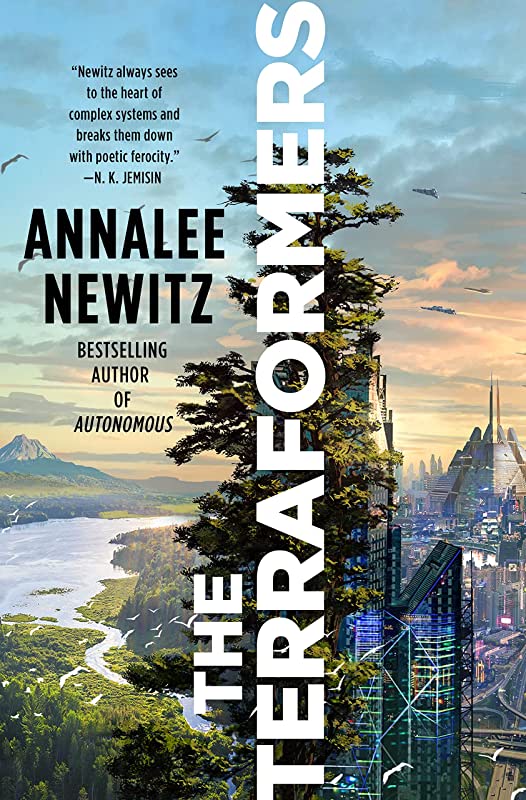
The Terraformers by Annalee Newitz—A hopeful future in this brilliant new novel
When Annalee Newitz set out to write a novel about a hopeful future, The Terraformers was the result. And I am here to report that they succeeded brilliantly. It’s set at a far-distant time when the human race has spread among thousands of worlds throughout the galaxy. The action spans 1,600 years, yet it all hangs together like a fine tapestry on the wall. The book is a tour de force of ingenuity. Almost every chapter offers up some marvelous figment of Newitz’s imagination. The novel oozes optimism, but it is no dreamy fantasy tale. War, revolution, greed, and aggression propel this story.
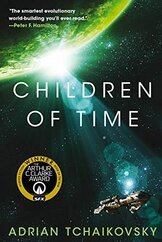
Adrian Tchaikovsky, Children of Time – Accelerated evolution is the theme in a superior science fiction novel
Tens of thousands of years after Earth has self-destructed in a horrific civil war, humanity has once again reached for the stars. The species has left behind the Old Empire, which spanned Earth and several of the solar system’s gas giant moons. Eventually, near-lightspeed interstellar ships began to spread through the galaxy, terraforming the most likely planets where Homo sapiens might find new homes.
Now, the technology of the Old Empire has been lost to time. Mere hints of that technology are accessible only to the classicists who labor to translate the old, dead languages of the meager records that survived the Empire’s destruction. But the toxic wastes the war left behind have gradually rendered Earth lifeless. Now humankind cannot rebuild where it has lived for millions of years. The remnants of the human race have set out to relocate elsewhere in starships, each of which houses a half-million people in stasis. Read the review.
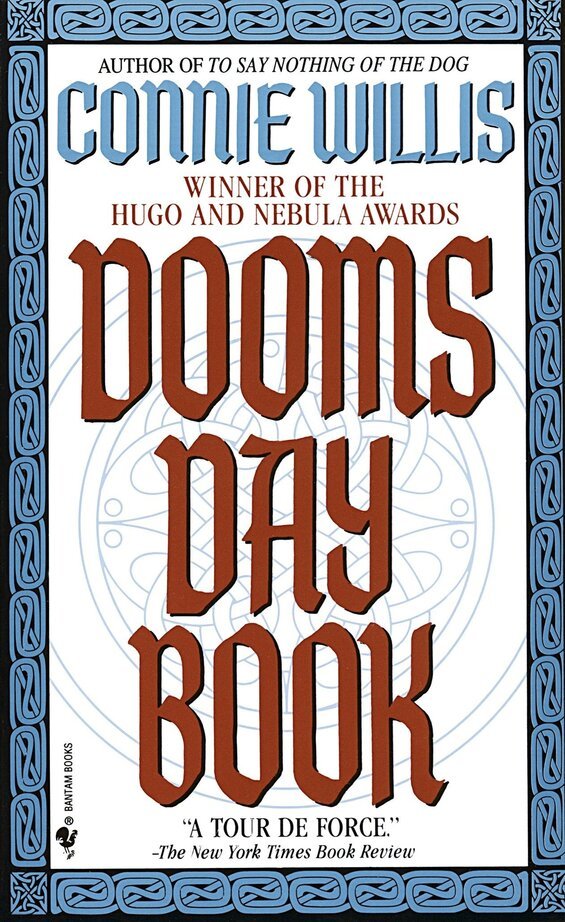
Connie Willis, Doomsday Book (Oxford Time Travel #2 of 5)— A time travel novel about the Black Death
Kivrin Engle is a bright and adventurous first-year student in medieval history at Oxford’s Brasenose College. In the mid-21st century, time travel is well established as a method for historians to study conditions over the past four or five hundred years, and Kivrin is eager to explore 14th-century England. Together with the acting head of medieval studies, Mr. Gilchrist, and her history tutor at Balliol College, Mr. Dunworthy, she develops a plan for a two-week visit in 1320, farther back than others have previously gone. Her target is the village of Skendgate, near the city of Bath in the country’s far southwest. Unfortunately for all concerned, everything goes wrong when Kivrin sets out for the past. Read the review.
All the top science fiction novels reviewed here
Alternate history
Kingsley Amis, The Alteration—Alternate history by a celebrated mainstream author
Yehuda Avner and Matt Rees, The Ambassador—An alternate history of Israel and World War II
Gregory Benford, The Berlin Project—An alternate history of the Manhattan Project
John Brunner, The Stone That Never Came Down—Britain is in the grip of religious extremism, but there’s a cure
Michael Chabon, The Yiddish Policemen’s Union—A brilliant novel about Jewish cops, Jewish mobsters, and the Messiah
Robert Conroy, 1942—What if Japan had finished the job at Pearl Harbor?
Robert Conroy, 1945—What if Japan hadn’t surrendered?
Robert Conroy, Red Inferno: 1945—What if the Cold War had turned hot in 1945?
Brendan DuBois, Amerikan Eagle: The Special Edition—If FDR had never served as President
Robert Harris, Fatherland—A gripping alternate history novel about the world after a Nazi victory
Stephen King, 11/22/63 – A new take on the JFK assassination
Mary Robinette Kowal, The Calculating Stars (Lady Astronaut #1)—This novel shows just how good hard science fiction can be
Mary Robinette Kowal, The Fated Sky (Lady Astronaut #2) —An astonishingly good science fiction novel about the first manned mission to Mars
Mary Robinette Kowal, The Relentless Moon (Lady Astronaut #3)—The third Lady Astronaut novel doesn’t live up to the promise of the first two
Ian R. MacLeod, Wake Up and Dream—This thriller is an alternate history of Hollywood
Sylvain Neuvel, A History of What Comes Next (Take Them to the Stars #1)—An alternate history of the space race
Silvain Neuvel, Until the Last of Me (Take Them to the Stars #2)—Humanity’s route to the stars
Charles Rosenberg, The Trial and Execution of the Traitor George Washington—Was George Washington truly the indispensable man?
C. J. Sansom, Dominion—A what-if history of the English Resistance
Eric G. Swedin, When Angels Wept: A What-If History of the Cuban Missile Crisis—An alternate history of the Cuban Missile Crisis
Jo Walton, The Farthing Trilogy – What if Nazi Germany had won the war?
Beat the Devils by Josh Weiss—A gripping alternate history thriller
Surrounded by Enemies by Bryce Zabel—What if JFK had survived Dallas?
Dystopian future
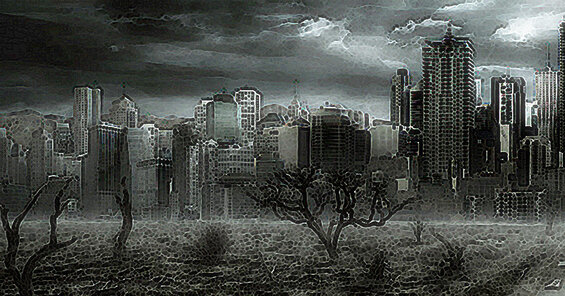
Omar El Akkad, American War – A chilling tale, lucidly told, of a Second American Civil War
M. T. Anderson, Feed – A terrifying vision of the future in an award-winning young adult novel
Margaret Atwood, The Maddaddam Trilogy – Margaret Atwood’s classic dystopian fiction
Margaret Atwood, The Handmaid’s Tale—Reading “The Handmaid’s Tale” in the Age of Trump
Margaret Atwood, The Testaments—The Handmaid’s Tale sequel follows the Hulu streaming adaptation
Paolo Bacigalupi, The Windup Girl – One of the best science fiction novels I’ve ever read
Paolo Bacigalupi, The Drowned Cities Series – Another exceptionally good sci-fi novel from an emerging master
Paolo Bacigalupi, The Water Knife – Dystopian fiction that breaks the mold
Eric Barnes, Above the Ether—Welcome to the apocalypse
Christopher Brown, Rule of Capture (Dystopian Lawyer #1)—A lawyer confronts dystopia in the making
Octavia E. Butler, The Parable Novels – A superb dystopian novel
Derek Cressman, RealityTM 2048: Watching Big Mother—Updating Orwell’s 1984: a thoughtful new sci-fi novel foresees a dystopian future
48 States by Evette Davis—Fascism tightens its grip in a near future America
S. B. Divya, Run Time—A promising debut in science fiction
Cory Doctorow, Little Brother – Terrorism. Homeland Security. Teenage rebellion.
Anthony W. Eichenlaub, Grandfather Anonymous (Old Code #1 of 5)—A dangerous old man in dystopia
Meg Elison, The Book of the Unnamed Midwife – A powerful feminist story in a dystopian landscape
Erik Hanberg, Semi/Human—A fanciful and light-hearted tale of a jobless future
Robert Harris, The Second Sleep – Robert Harris portrays a dystopian future England
Rob Hart, The Warehouse—Amazon on steroids in a grim near-future dystopia
Hugh Howey, Sand (Omnibus Edition)—Dystopian fiction from a fresh new perspective
Hugh Howey, Beacon 23—Hugh Howey’s contemporary science fiction
Hugh Howey, Shift, Omnibus Edition (Shift Trilogy #1-3) – Hugh Howey’s dystopian novel with a twist
David T. Isaak, Tomorrowville (Isaak Collection #1)—He wakes up to a future dystopian America
Gerald M. Kilby, Solar Storm: Moon Base Delta (Moon Base Delta #1)—A solar storm imperils life on Earth, in space, and on the moon
Maggie Shen King, An Excess Male – A great science fiction novel set in a future totalitarian China
David Koepp, Aurora—A massive solar storm threatens life on Earth
Nancy Kress, Tomorrow’s Kin (Yesterday’s Kin Trilogy #1)—Hard science fiction doesn’t get much better than this
Marie Lu, Legend (Legend Trilogy #1) – Far-future teens battling for survival in dystopia
Marie Lu, Prodigy (Legend Trilogy #2)—In this YA sci-fi trilogy, Marie Lu imagines a novel future for the United States
Ling Ma, Severance—Literary critics loved this novel.
Peyton Marshall, Goodhouse—Dystopian fiction that rings true
Walter M. Miller, Jr., A Canticle for Leibowitz—This classic dystopian novel is steeped in Catholicism
Pat Murphy, The City, Not Long After—San Francisco after the Plague
Megan E. O’Keefe, The First Omega—In this dystopian novella, the heartland has been hollowed out
Annalee Newitz, Autonomous – In 2144, Arctic resorts, autonomous robots, and killer drugs
William F. Nolan and George Clayton Johnson, Logan’s Run—A dystopian classic packed with action
George Orwell, 1984—Is the U.S. on the road to totalitarianism?
Nathaniel Rich, Odds Against Tomorrow—A novel about obsession, natural disaster, and business in New York
Matt Richtel, Dead on Arrival – Neurology meets high-tech in this gripping science fiction novel
H. C. H. Ritz, The Robin Hood Thief – A grim look into the near future that’s all too plausible
H. C. H. Ritz, The Lightbringers — The power of positive thinking goes awry in this dystopian novel
Alice Sabo, Lethal Seasons (Changed World #1 of 6)—The Apocalypse unfolds in this gripping science fiction novel
Alice Sabo, Scattered Seeds (Changed World #2 of 6)—Eking out existence in a fast-changing world
Alice Sabo, Gleanings (A Changed World #3 of 6)—Humanity begins to recover from the Apocalypse
Alice Sabo, Lessons Learned (Changed World #4 of 5)—Recovering from the Apocalypse
Emily St. John Mandel, Station Eleven – Life on Earth after the apocalypse
Theory of Bastards by Audrey Schulman—Seeking clues for human evolution in animal behavior
Jim Shepherd, Phase Six—This future pandemic is worse than COVID-19
Rachel Sparks, Resistant—Resistant germs threaten humanity in this doomsday thriller
Adrian Tchaikovsky, Firewalkers—A dismal, dystopian future where the climate has run amok
Zac Topping, Wake of War—Is a second civil war in America’s future?
Vauhini Vara, The Immortal King Rao—A novel dystopian story that explores anarchism
David Walton, The Genius Plague—The greatest threat to humanity is . . . a mushroom?
David Walton, Terminal Mind—Breakthroughs in brain science propel this science fiction thriller
Posthuman future
Greg Bear, Darwin’s Radio (Darwin #1 of 2)—A brilliant novel about accelerated evolution
Greg Bear, Darwin’s Children (Darwin #2 of 2)—A novel view of the posthuman future
Michael Crichton, Next—A fast-moving thriller about genetic engineering
Ramez Naam, The Nexus Trilogy – The post-human future explored in an outstanding SF novel
Susan Kaye Quinn,The Legacy Human (Singularity #1)—After the singularity, immortality for billions
Time travel
Gregory Benford, Timescape—An ingenious twist on time travel
Steven R. Boyett and Ken Mitchroney, Fata Morgana—Clever plot twists in a time travel tale
Mike Chen, Here and Now and Then—A novel treatment of time travel in this promising science fiction debut
Michael Crichton, Timeline—Nonstop action in this time travel thriller
New Pompeii by Daniel Godfrey—It’s not time travel. But it looks like it.
Emily St. John Mandel, Sea of Tranquility—Emily St. John Mandel writes about a pandemic again
Wendy Nikel, The Continuum (Place in Time #1)—An ingenious take on time travel
Douglas Phillips, Quantum Time (Quantum #3)—An entertaining tale of time travel
Jodi Taylor, Just One Damned Thing After Another (Chronicles of St. Mary’s #1)—Historians blunder about in the past in this time travel story
John Varley, Mammoth—A novel about time travel featuring wooly mammoths and an eccentric billionaire
Connie Willis, Doomsday Book (Oxford Time Travel #2 of 5)—A time travel novel about the Black Death
Blackout (Oxford Time Travel #4 of 5) by Connie Willis—Historians study World War II in person
Space opera
My favorite space opera series is Lois McMaster Bujold’s Vorkosigan Saga, which is perhaps the best-known and most loved of recent ventures into the realm. You’ll find links to my reviews of all the books in the series at The pleasures of reading the complete Vorkosigan Saga. I’m listing below just one of the 20 books in the series, which is in fact one of the best.
David Brin, Startide Rising (Uplift #2)—Life in the Uplift Universe is endlessly fascinating
Lois McMaster Bujold, Komarr (Vorkosigan Saga #11)—The best book in the Vorkosigan Saga?
Becky Chambers, The Long Way to a Small, Angry Planet (Wayfarers #1) — A delightful modern space opera that’s all about character development
Becky Chambers, A Closed and Common Orbit (Wayfarers #2) — Lovable characters in this off-beat space opera
Becky Chambers, Record of a Spaceborn Few (Wayfarers #3) — A brilliant invented universe in an unusually good new science fiction novel
Becky Chambers, The Galaxy, and the Ground Within (Wayfarers #4)—The last of the Wayfarers series from Becky Chambers
Aliette de Bodard, On a Red Station, Drifting – In this remarkable sci-fi novella, we enter a disorienting future reality
Nancy Kress, The Eleventh Gate—Political philosophies clash in this new space opera
John Scalzi, The Collapsing Empire (Interdependency #1) – A promising start to a new John Scalzi series
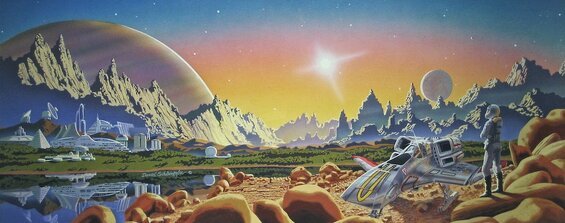
Alien encounters
So far as I can tell, the author who has delved most deeply into the theme of First Contact is the endlessly inventive Australian writer Peter Cawdron. At this writing, he has published 25 standalone First Contact novels. I’ve read them all. You can access my reviews at Peter Cawdron’s insightful First Contact book series. I thought it excessive to list them all individually here, so I’m including just a handful of the best.
Poul Anderson, The Avatar—Alien life abounds in our starfaring future
Greg Bear, The Forge of God (Forge of God #1)—Greg Bear’s powerful tale of interstellar conflict
Sue Burke, Semiosis (Semiosis Duology #1)—Can plants think? These colonists on an alien world learn the answer the hard way.
Peter Cawdron, Jury Duty (First Contact #17)—First Contact Down Under. Way down under.
Peter Cawdron, Generation of Vipers (First Contact #19)—A compelling new alien invasion novel
Peter Cawdron, Clowns (First Contact #20)—Where are all the aliens?
Peter Cawdron, The Art of War (First Contact #23)—China and the US are on the brink of war. Or are they?
Peter Cawdron, Ghosts (First Contact #24)—Human nature complicates First Contact
Peter Cawdron, The Artifact (First Contact #25)—Why have aliens never contacted us?
Arthur C. Clarke, Rendezvous With Rama—Arthur C. Clarke’s believable First Contact novel
Becky Chambers, To Be Taught, If Fortunate—An excellent hard science fiction novella from Becky Chambers
Michael Crichton and Daniel H. Wilson, The Andromeda Evolution—Michael Crichton comes back to life in a new techno-thriller
K. Patrick Donoghue, Skywave (Rorschach Explorer #1) – A private space company threatens a decades-long government coverup
Lindsay Ellis, Axiom’s End (Noumena #1)—First Contact is old news in this sc-fi thriller
Hank Green, An Absolutely Remarkable Thing (The Carls #1)—A funny First Contact story. Call it “science fictiony.”
Matt Haig, The Humans—Kurt Vonnegut lives in Matt Haig’s novel
Joe Haldeman, Mindbridge—First Contact goes awry in this suspenseful sci-fi novel
Tony Harmsworth, The Visitor: First Contact Hard Science Fiction – What happens after First Contact
Nancy Kress, If Tomorrow Comes (Yesterday’s Kin #2)—In this highly anticipated science fiction sequel, surprises are the order of the day
Ursula K. Le Guin, The Left Hand of Darkness (Hainish Cycle #4)—Ursula Le Guin’s classic gender-bending novel
Marina J. Lofstetter, Activation Degradation—Biomechanical robots battle invading aliens
Quantum Space (Quantum #1) by Douglas Phillips—A breakthrough in quantum physics opens new vistas
Frederik Pohl, Gateway (Heechee Series #1 of 5)—A classic novel of space exploration
Mary Doria Russell, The Sparrow—A troubled First Contact mission led by Jesuit priests
John Sandford and Ctein, Saturn Run – First Contact: Close Encounters of the Fourth Kind
Jasper T. Scott, First Encounter—Hostile First Contact in this promising prequel to a new sci-fi series
Michael Siemsen, Exigency—Scientists explore a planet with two sentient species
Children of Time (Children of Time #1)—Accelerated evolution is the theme in a superior science fiction novel)
Adrian Tchaikovsky, Children of Ruin (Children of Time #2)—An award-winning series continues
Adrian Tchaikovsky, Children of Memory (Children of Time #3)—This extraordinary series won the Hugo Award
Kevin Tinto, Ice (Ice Trilogy #1 of 3)—Digging out the secret of the Anasazi
Kevin Tinto, Ice Genesis (Ice Trilogy #2 of 3)—The secret of the Anasazi continues to unfold
Kevin Tinto, Ice Revelation (Ice Trilogy #3 of 3)—The thrilling conclusion to a science fiction trilogy
David Walton, Living Memory—These dinosaurs left something behind
David Walton, Deadly Memory—Paleontologists unearth a deadly weapon—and a killer virus
David Walton, Memory Reborn—Dinosaurs live (and I don’t mean just birds)!
David Wellington, The Last Astronaut—In a classic First Contact novel, astronauts meet . . . something very strange
Connie Willis, The Road to Roswell—An award-winner’s comic alien abduction story
Robert Charles Wilson, Blind Lake—An award-winning sci-fi novelist writes a disappointing book
Robert Charles Wilson, Bios—Struggling for life in a hostile alien environment
Military sci-fi
Elliot Ackerman and Admiral James Stavridis, 2034: A Novel of the Next World War—The Third World War breaks out in 2034, but not how you think
Jack Campbell, The Lost Fleet: Dauntless (Lost Fleet #1)—The exciting first book in a military SF series
C. J. Cherryh, Downbelow Station—In this interstellar war, the combatants are all human
Joe Haldeman, The Forever War (Forever War Trilogy #1) – This classic science fiction war novel won both the Hugo and Nebula Awards
Joe Haldeman, Forever Peace (Forever War Trilogy #2)—A prescient look at the military of the future
Elizabeth Moon, Trading in Danger (Vatta’s War #1)—The launch of a promising military science fiction series
Daniel Suarez, Kill Decision—Killer drones menace the USA in this military technothriller
Adrian Tchaikovsky, Ironclads—In a clever novella, a future of endless war
The far future
Blake Crouch, The Wayward Pines Trilogy – A truly original work of speculative fiction
Marina J. Lostetter, Noumenon – A visionary science fiction novel with hard science at its core
Robert Silverberg, Nightwings—A science fiction master imagines a far future Earth
Robert Silverberg, Across a Billion Years—A science fiction master imagines a uniquely advanced alien civilization
Robert Silverberg, Hawksbill Station—A science fiction Grand Master gets it wrong about the future
Adrian Tchaikovsky, Children of Time – Accelerated evolution is the theme in a superior science fiction novel
Robert Charles Wilson, Spin (Spin Trilogy #1) – A Big History of the future in this popular visionary science fiction novel
Robert Charles Wilson, Axis (Spin Trilogy #2)—In this sci-fi novel, God is a networked intelligence scattered through the galaxy
Robert Charles Wilson, Vortex (Spin Trilogy #3)—The Spin Trilogy concludes with the heat death of the universe
Humorous sci-fi
M. T. Anderson, Landscape with Invisible Hand – A clever new take on an alien invasion in a humorous young adult novel
Susan Hasler, Project HALFSHEEP: Or How the CIA’s Alien Got High – The CIA, LSD, and a drug-addled alien from the planet Utorb
Invisible Things by Mat Johnson—A satirical science fiction novel about life on Europa
John Scalzi, Redshirts: A Novel with Three Codas – Diabolically clever, and very, very funny
Gary Shteyngart, Super Sad True Love Story – Gary Shteyngart’s dark vision of the future
John Varley, Red Thunder (Thunder & Lightning #1)—Wacky science fiction from a master of hard SF
Kurt Vonnegut, Galápagos—Kurt Vonnegut writes about the end of the world, but it’s not science fiction
Artificial intelligence
Robert Cargill, Sea of Rust– A science fiction novel set after the war between robots and humans
Becky Chambers, A Psalm for the Well-Built (Monk & Robot #1)—The intriguing start to a new Becky Chambers series
Becky Chambers, A Prayer for the Crown-Shy (Monk and Robot #2)—A monk and robot offer hope for the future
J. P. Delaney, The Perfect Wife—A psychological thriller in a science fiction setting
Robert Harris, The Fear Index – A taut thriller about the world of multibillion-dollar hedge funds
William Hertling, Avogadro Corp: The Singularity Is Closer Than it Appears (Singularity #1) – A cautionary tale about artificial intelligence
William Hertling, A. I. Apocalypse (Singularity #2)—Artificial general intelligence—by accident
Ira Levin, This Perfect Day – A superb tale of a future where artificial intelligence rules
Lois and Ross Melbourne, Moral Code—Pushing the boundaries of ethics in artificial intelligence
Sean Platt and Johnny B. Truant, Burnout—A near-future tale of man against machine
Eric Silberstein, The Insecure Mind of Sergei Kraev—A cautionary tale about brain implants
Daniel Suarez, Daemon (Daemon #1 of 2)—It’s not artificial intelligence. But it’s taking over, anyway.
Adrian Tchaikovsky, The Expert System’s Brother—An exceedingly clever science fiction story
Kurt Vonnegut Jr., Player Piano – Kurt Vonnegut’s warning about automation
Martha Wells, All Systems Red: The Murderbot Diaries – A reminder that technology doesn’t always work well in the future, either
Martha Wells, Artificial Condition (Murderbot Diaries #2)—Far away and long in the future, an augmented human designed to kill
Martha Wells, Rogue Protocol (Murderbot Diaries #3)—Sci-fi’s favorite antisocial A.I. surfaces again in the Muderbot Diaries
Martha Wells, Exit Strategy (Murderbot Diaries #4)—The award-winning Murderbot series approaches a climax
Daniel H. Wilson, Robopocalypse—Outstanding speculative novel about one possible future
Daniel H. Wilson, The Clockwork Dynasty—When ancient robots walked the Earth
Sci-fi and mystery mashups
Laura J. Mixon, Up Against It—Life, death, and politics in the asteroid belt
Emma Newman, After Atlas (Planetfall, A) – A 22nd century police procedural in a fascinating future Earth
Emma Newman, Before Mars (Planetfall #3) – A psychological thriller in a science fiction setting
Patrick S. Tomlinson, The Ark (Children of a Dead Earth #1 of 3)—On a starship, an art heist, a murder, a coverup
Patrick S. Tomlinson, Trident’s Forge (Children of a Dead Earth #2)—A suspenseful mash-up of science fiction and mystery
Patrick S. Tomlinson, Children of the Divide (Children of the Dead Earth #3)—This sci-fi novel isn’t credible, but it’s a lot of fun
Ben H. Winters, Golden State—A riveting hybrid science fiction mystery novel that questions reality
Miscellaneous themes
Poul Anderson, Tau Zero—In this great example of classic hard science fiction, humankind reaches the starsChris Angus
Chris Angus, London Underground—Secrets emerging underground London threaten millions
Poul Anderson, The Boat of a Million Years—A journey from ancient history to the stars
Madeline Ashby, Company Town – An imaginative look at a corporate future in a strange sci-fi novel
Greg Bear, Blood Music—A biological technothriller about genetic engineering
M. R. Carey, Infinity Gate (Pandominion #1)—War in the multiverse is about to begin
Jeffrey A. Carver, Neptune Crossing (Chaos Chronicles #1)—Chaos theory triggers an interplanetary adventure
Peter Cawdron, Maelstrom (First Contact #12)—Worlds collide with Earth in an entertaining First Contact story
Peter Cawdron, Apothecary (First Contact #22)—First Contact in the 16th Century
Blake Crouch, Dark Matter – A journey into the multiverse
Blake Crouch, Upgrade—Gene editing is a federal crime in this near-future thriller
Tess Gerritsen, Gravity: A Novel of Medical Suspense—An action-packed medical thriller set in orbital space
Hugh Howey, Wool Omnibus Edition (Silo 1-5) – Hugh Howey’s outstanding science fiction
David Koepp, Cold Storage—A biological thriller that may keep you up at night
Marissa Levien, The World Gives Way—When hope dies on a generation starship
Eugene Linden, Deep Past—Is homo sapiens the only highly intelligent species ever to walk the Earth?
Anthony McCarten, Going Zero—The CIA and a Facebook look-alike join forces in surveillance
Jon McGoran, Spliced (Spliced #1 of 3) — A YA novel about biological innovation run wild
Maureen F. McHugh, China Mountain Zhang — A forgotten 30-year-old science fiction classic
China Mieville, The City and the City – The most original sci-fi novel I’ve read in years
Brandon Q. Morris, Amphitrite (Black Planet #1)—Journey to a newly discovered planet far out from the sun
Limit of Vision by Linda Nagata—When nanotechnology and genetic engineering merge
Sylvain Neuvel, The Themis Files – An entertaining if puzzling sci-fi novel
Nnedi Okorafor, Binti (Binti Trilogy #1)—An African student travels to the stars in the first book of the Binti Trilogy
Malka Older, Infomocracy (Centenal Cycle #1)—Does the future of democracy look like this?
Adam Oyebanji, Braking Day—Class conflict and dissension on a generation starship
Alastair Reynolds, Blue Remembered Earth (Poseidon’s Children #1 of 3)—An interplanetary treasure hunt to uncover an Earth-shaking secret
H. C. H. Ritz, Absence of Mind – In an unusually original sci-fi technothriller, technology meets neuroscience
Kim Stanley Robinson, Red Moon – China and the US face revolutionary change
M. A. Rothman, Darwin’s Cipher—Genetic research goes awry in this chilling science fiction novel
Rebecca Scherm, A House Between Earth and the Moon—When billionaires flee to a private space station
Daniel Suarez, Delta-V (Delta-V #1 of 2)—A brilliant hard science fiction novel about asteroid mining
Daniel Suarez, Critical Mass (Delta-V #2 of 2)—This is humanity’s future in space
Daniel Suarez, Influx—Down becomes up in this clever hard science thriller
Jeff VanderMeer, Annihilation (Southern Reach Trilogy #1)—A sense of strangeness without bug-eyed monsters
Andy Weir, The Martian – Hard science fiction at its best
Now, I don’t pretend for a minute that this is a list of the best science fiction novels of all time. It just happens to be those I’ve read and loved over the past decade.
Lots of dystopian novels
You may notice that the list above includes a disproportionate number of dystopian novels. That’s no accident. It’s the result of my research. Recently I wrote a book in which I discuss 62 such novels, including several of those listed above. The book is entitled Hell on Earth: What we can learn from dystopian fiction. You can find the book here.
For related reading
This post is one of My 10 top reading recommendations.
If you want, by contrast, to read my review of a really bad science fiction novel, see Lightless (Lightless #1 of 3) by C. A. Higgins (This futuristic mystery doesn’t measure up).
For more good reading, check out:
- The ultimate guide to the all-time best science fiction novels
- These novels won both Hugo and Nebula Awards
- The five best First Contact novels
- The best time travel novels
- Seven new science fiction authors worth reading
- The top 10 dystopian novels
For a journey through some of the early stories of the iconic names in the genre, see The Science Fiction Hall of Fame, Volume One 1929-1964 edited by Robert Silverberg (Reassessing the Science Fiction Hall of Fame).
You might also check out Top 10 great popular novels.
And you can always find my most popular reviews, and the most recent ones, on the Home Page.

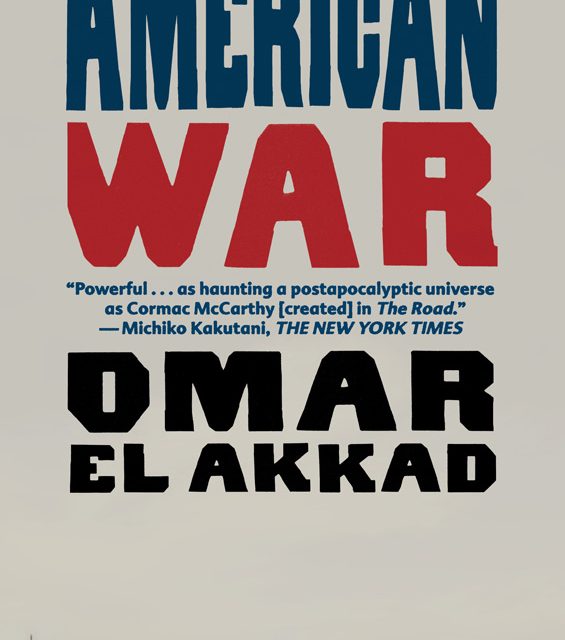
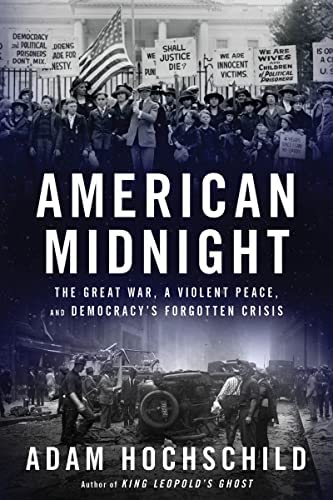
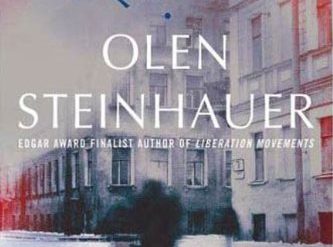
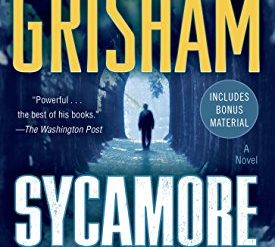
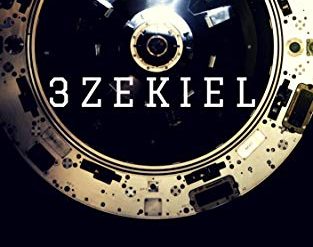






















This post was truly worthwhile to read. I wanted to say thank you for the key points you have pointed out as they are enlightening.
Thank you!